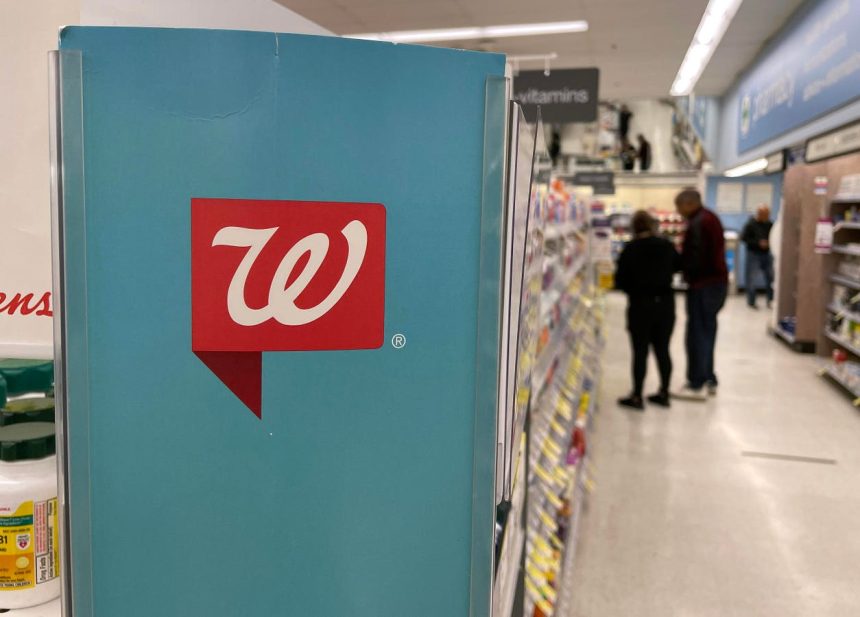Walgreens Boots Alliance (WBA), the iconic drugstore chain, has seemingly quelled speculation of a private equity buyout with a strong fiscal first-quarter earnings report and assertive comments from its CEO, Tim Wentworth. The company’s performance, marked by operational improvements across various business segments, has significantly boosted investor confidence, driving a substantial surge in its stock price. This surge makes a potential acquisition by private equity firms like Sycamore Partners, as rumored earlier, less financially feasible. Wentworth’s focus on internal improvements and a “retail pharmacy-led operating model” further suggests a commitment to organic growth rather than a sale.
The first quarter earnings, while revealing a wider net loss compared to the previous year, highlighted several positive trends. Walgreens maintained its prescription drug market share in the US, demonstrating stability in its core business. The international segment continued its strong performance, contributing significantly to the overall financial picture. Notably, the US healthcare segment exceeded expectations, driven by revenue growth and effective cost control. These factors collectively indicate a positive trajectory for the company’s turnaround efforts, as emphasized by Wentworth. The CEO expressed confidence in the progress made towards achieving long-term objectives, reinforcing the message of internal transformation.
Analysts have responded positively to Walgreens’ performance, viewing the improved financial outlook as a sign of a successful turnaround strategy. The substantial increase in stock price, exceeding 25%, not only adds to the company’s market valuation, but also serves as a deterrent to potential buyers, increasing the financial hurdle for a private equity takeover. Analysts believe that continued execution of the optimization plan, which includes store closures and the divestiture of its stake in VillageMD, will further enhance investor confidence.
A key component of Walgreens’ revitalization strategy is the ongoing optimization plan, which involves the closure of approximately 1,200 stores over the next three years. Wentworth confirmed the company’s commitment to this plan, highlighting the closure of 70 stores in the first quarter and anticipating another 450 closures for the full year. This streamlining effort aims to enhance operational efficiency and improve profitability by focusing on higher-performing locations. Concurrently, the company is progressing with the sale of its stake in VillageMD, a primary care provider, which has incurred significant costs. This strategic move is expected to further bolster Walgreens’ financial position.
Market observers see these developments as positive indicators of Walgreens’ ability to navigate its challenges independently. The strong performance in the first quarter, coupled with Wentworth’s emphasis on a retail pharmacy-focused strategy, signals a shift away from the earlier narrative of a potential buyout. Analysts like Rajiv Leventhal of Emarketer believe that Walgreens’ turnaround is firmly underway, diminishing the likelihood of a sale to a private equity firm. The company’s commitment to its existing business model and the implementation of its strategic plan are seen as crucial steps towards long-term value creation.
Despite the positive trajectory, Walgreens still faces challenges. Analysts acknowledge the persistent headwind of soft retail sales, which continue to impact the company’s performance. Furthermore, the company faces a substantial debt burden in 2025, which requires careful management. However, the overall sentiment remains optimistic, with analysts expressing confidence in Walgreens’ ability to overcome these obstacles. The first quarter results have significantly boosted investor confidence, reinforcing the belief that the company is on the right track towards sustainable growth and profitability. The focus on core businesses, coupled with strategic initiatives like the optimization plan, lays the groundwork for a successful turnaround, independent of external interventions like a private equity acquisition.



